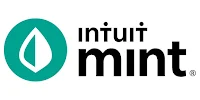Definition of Budgeting
Apps: Budgeting apps are software
applications designed to assist individuals and households in managing their
finances. They enable users to track income, expenses, and financial goals
across various devices, including smartphones, tablets, and computers.
Importance
of Budgeting Apps: Budgeting apps offer
numerous benefits:
- Time and Energy Savings:
Replace traditional pen-and-paper methods with efficient digital tracking.
- Expense Tracking:
Easily monitor daily expenses and categorize transactions.
- Income Tracking:
Capture all income sources for a comprehensive financial overview.
- Budget Creation:
Set spending limits and receive notifications when limits are reached.
- Bill Reminders:
Stay on top of bills to avoid late fees.
- Savings Goals:
Set and track financial objectives.
- Reporting and Analytics:
Gain insights into spending patterns.
- Data Security:
Implement robust security measures to protect sensitive financial data.
Evolution of Budgeting
Apps: Budgeting apps have evolved
significantly, driven by increased demand for financial management tools and
the convenience of virtual banking. The COVID-19 pandemic accelerated this
growth, with a 150% surge in active users between 2020 and 2021.
Criteria for Selecting
Must-Have Budgeting Apps: To identify the top 5
budgeting apps, consider the following criteria:
- User-Friendly Interface
- Expense Tracking
- Budget Customization
- Bill Reminders
- Savings Goals
- Reporting and Analytics
Top
5 Must-Have Budgeting Apps:
1. YNAB (You Need ABudget) - Perfect Budgeting App For Achieving Financial Goals (Learn More)
- Forbes Advisor Rating: 4.7/5
- Features:
Focuses on current financial priorities, and offers financial goal
tracking, workshops, and accessibility across devices.
- User Reviews:
60,000+
- Pricing:
34-day free trial, $14.99/month or $99/year
- Compatibility:
Desktop, iOS, and Android
2. EMPOWER - Best Suitedfor Investors (👈Click to Learn More)
- Forbes Advisor Rating: 4.5/5
- Features:
Outstanding reporting, investment management, spending tracking, savings
tools, and advisory tools.
- User Reviews:
151,000+
- Pricing:
Free
- Compatibility:
iOS and Android
3. MINT - Best MonitoringApp for Daily Activities
- Forbes Advisor Rating: 4.5/5
- Features:
Personalized insights, customizable budgets, subscription monitoring, and
bank fee alerts.
- User Reviews:
986,000+
- Pricing:
Free
- Compatibility:
iOS and Android
4. GOODBUDGET - Best forCreating a Budget Using Envelopes
- Forbes Advisor Rating: 4.5/5
- Features:
Digital envelope system, shared budget management, educational resources,
and budget customization.
- User Reviews:
31,000+
- Pricing:
Free, Plus version available at $8/month or $70/year
- Compatibility:
iOS and Android
5. OPORTUN (Formerlyknown as Digit) - Best for Passive Savings and Investing
- Forbes Advisor Rating: 4.5/5
- Features:
Automated savings, goal-oriented deposits, investment fund selection, and
simplicity.
- User Reviews:
322,000+
- Pricing:
Free for the first 6 months, then $5/month
- Compatibility:
iOS and Android
Effective budgeting is
essential for achieving financial stability and reducing stress. The top 5
budgeting apps listed above offer a range of features to suit various financial
needs. Whether you're an investor, a daily spender, or looking to save
effortlessly, these apps can help you lead a stress-free financial life. Choose
the one that best aligns with your goals and preferences to take control of
your finances.
How
to Use Budgeting Apps Effectively:
- Setting Up Your Budget:
- Begin by entering your monthly
income and fixed expenses.
- Allocate funds to different spending
categories based on your priorities and financial goals.
- Adding and Tracking Expenses:
- Regularly input your daily expenses
into the app.
- Categorize each expense to gain
insights into your spending habits.
- Ensure all transactions are
up-to-date for accurate budgeting.
- Creating Savings Goals:
- Set specific and achievable savings
goals within the app.
- Allocate a portion of your income to
these goals to track progress.
- Adjust your budget to accommodate
savings objectives.
- Analyzing Budget Reports:
- Review budget reports and analytics
provided by the app.
- Identify areas where you can cut
expenses or improve savings.
- Use insights to make informed
financial decisions.
- Benefits of Using Budgeting Apps:
- Improved Financial Management
- Enhanced Savings
- Debt Reduction
- Financial Goal Achievement
Comparison of Must-Have Budgeting
Apps:
- Features Comparison:
- Evaluate features like goal
tracking, reporting, and expense categorization.
- Choose the app that aligns with your
specific budgeting needs.
- Pricing Comparison:
- Consider free vs. paid versions
based on your requirements.
- Start with a free version and
upgrade if needed for additional features.
- User-Friendliness Comparison:
- Opt. for a user-friendly app to
simplify your budgeting process.
- Avoid overly complex apps that may
hinder your financial management.
- Compatibility Comparison:
- Ensure the app is compatible with
your devices (iOS, Android, desktop).
- Confirm compatibility to avoid
device-related expenses.
Common
Mistakes in Budgeting App Usage and Solutions:
- Neglecting Regular Updates:
- Solution: Enable automatic updates
and check for app updates regularly.
- Ignoring Security Measures:
- Solution: Use strong passwords and
enable two-factor authentication for added security.
- Not Syncing All Financial Accounts:
- Solution: Sync all bank, credit
card, and investment accounts for accurate budgeting.
- Overlooking Bill Reminders:
- Solution: Set up bill reminders to
avoid late payments and penalties.
- Not Setting Realistic Goals:
- Solution: Set achievable savings and
budget goals to stay motivated and on track.
Critical
Thinking Questions:
- How do the features of the top 5
budgeting apps differ, and which one aligns best with your financial
goals?
- What are the potential drawbacks of
relying solely on budgeting apps for financial management?
- How can you effectively integrate a
budgeting app into your daily financial routine to achieve long-term
financial stability?
Key
Takeaways:
- Budgeting apps help in financial
management and tracking expenses.
- Criteria for selecting budgeting apps
include user-friendliness, expense tracking, customization, bill
reminders, savings goals, and reporting.
- The top 5 must-have budgeting apps
offer various features, pricing plans, and compatibility options.
- Effective use of budgeting apps
involves setting up budgets, tracking expenses, and analyzing reports.
- Using budgeting apps can lead to
improved financial management, enhanced savings, and goal achievement.
- Comparing budgeting apps is essential
to find the most suitable one for your financial needs.
- Common mistakes in budgeting app
usage include neglecting updates, security, and not syncing accounts.
Reference Chart:
- Eastern Peaks @https://easternpeak.com/
- Forbes Advisor @https://www.forbes.com/








